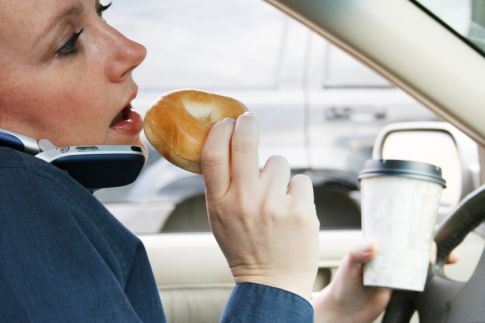New research suggests that even hands-free phone use while driving is a significant risk. A recent study by the NTSB says that your brain becomes heavily engaged in that function at the expense of attention paid to driving. The NTSB study shows that regardless of the source of distraction, the result is the same.
From a report on the study at the Omaha World Herald site:
The scientific evidence, however, is generally with NTSB, researchers said.
“There is a large body of evidence showing that talking on a phone, whether handheld or hands-free, impairs driving and increases your risk of having a crash,” Anne McCartt, senior vice president for research at the Insurance Institute for Highway Safety, said.
Jim Hedlund, a safety consultant and former National Highway Traffic Safety Administration official, recently examined 300 cellphone studies for the Governors Highway Traffic Safety Administration. He couldn’t recall a single study that showed drivers talking on a headset or hands-free phone were at any less risk of an accident than drivers with one hand on the wheel and a phone in the other.
A similar analysis for the government of Sweden recently came to the same conclusion: “There is no evidence suggesting that hands-free mobile phone use is less risky than handheld use.”
So while it might seem like a great idea to catch up with friends and family while making that long drive home from the airport (which ends up being about half of the phone calls between my brother and I), and it might seem safe with the hands-free headset or speakerphone, the better idea is just not to make that call while driving.
